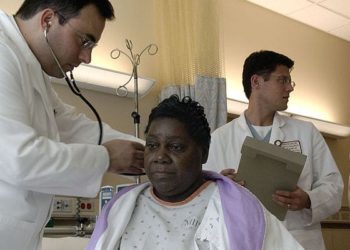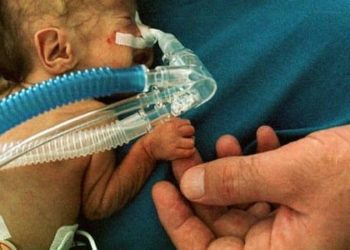Daily reading habits may be associated with higher surgery in-training examination performance
1. Daily studying and textbook use were associated with higher ABSITE scores.
2. United States Medical Licensing Exam (USMLE) 2 and Medical College Admission Test (MCAT) scores, as well as resident attitude, were also associated with overall American Board of Surgery In-Training Examination (ABSITE) performance.
Evidence Rating Level: 2 (Good)
Study Rundown: Aside from clinical duties, residents are expected to read and strengthen clinical knowledge, participate in educational activities, and prepare for standardized examinations. The ABSITE is an annual standardized examination administered to all general surgery residents to assess their clinical progress, and several studies have demonstrated its importance in predicting subsequent success on the American Board of Surgery Qualifying and Certifying examinations. In this study, the authors evaluated whether resident reading habits makes any difference in overall ABSITE performance. The main finding was that daily reading habits were statistically significant positive predictors for ABSITE performance by general surgery residents. Furthermore, the authors found that past USMLE 2 and MCAT scores, as well as resident attitude regarding the importance of the ABSITE results, were independent positive predictors of ABSITE performance. An important strength of this study is its large sample size involving residents at the multi-institutional level. However, its limitations include its retrospective study design.
Click to read the study in JAMA Surg
Relevant Reading: Study habits centered on completing review questions result in quantitatively higher American Board of Surgery In-Training Exam scores
In-Depth [Retrospective study]: This is a retrospective study involving scores from the 2014 ABSITE. A 39-item questionnaire was developed for administration to general surgery residents who had taken the ABSITE during the 2014 academic year in order to identify factors that were potentially associated with ABSITE performance. A total of 371 general surgery residents in 15 residency programs across the US were identified and of these 266 residents were analyzed. Univariate and multivariate analyses were then used to identify factors that were positively correlated with ABSITE scores. Based on univariate analysis, the following factors were associated with higher ABSITE performance (reported as effect on mean ABSITE percentile scores [95%CIs]): USMLE 1 and 2 scores (USMLE 1, 0.1 [0.02-0.14], p = 0.03; USMLE 2, 0.3 [0.19-0.44], p < 0.001), MCAT score (1.2 [1.3-2.0], p = 0.002), high opinion of ABSITE significance (p < 0.001), surgical textbook use (11 [6-16], p = 0.02), daily studying (13 [4-23], p = 0.02), and high satisfaction with study materials (p < 0.001). On multivariate analysis, USMLE 2 score (0.4 [0.2-0.6], p < 0.001), MCAT score (0.6 [0.2-1.0], p = 0.003), high opinion of ABSITE significance (9.2 [6.9-11.6], p < 0.001), and having an equal focus on patient care and ABSITE preparation during study (6.1 [0.6-11.5], p = 0.03) were identified as positive predictors of ABSITE performance.
Image: PD
©2015 2 Minute Medicine, Inc. All rights reserved. No works may be reproduced without expressed written consent from 2 Minute Medicine, Inc. Inquire about licensing here. No article should be construed as medical advice and is not intended as such by the authors or by 2 Minute Medicine, Inc.






